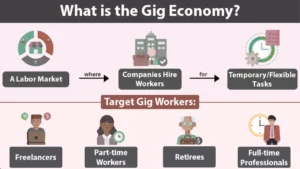How a Government Shutdown Could Affect Your Daily Life.A government shutdown can affect your daily routine and lifestyle, including your travel plan, your wages, payments, and stipends. If federal subsidies and essential goods slow down, federal workers will go unpaid, ruining their lives and getting stuck, and even life will be more complicated.

Whether you depend on social security, food assistance, or even just traveling to the airport, shutdowns have real consequences. The U.S. government will shut down at the end of the week if Congress doesn’t pass 12 spending bills by September 30. This emergency deal appears unlikely, leaving many Americans worried about how a shutdown would affect them.
During the shutdown, the government will only spend on essential goods and services such as law enforcement and public safety. It means thousands of workers will not be paid their salaries on time. While it will be downsized, which will result in several financial hardships for some American families, imminent inflation will also affect student loan repayment.

In this guide, we’ll break down the key ways a government shutdown could impact you, from delayed benefits to closed national parks, and what you can do to prepare.
What Causes a Government Shutdown
A government shutdown takes place when Congress loses control to approve new spending for federal departments, which require congressional permission each year to expend funds. In December 2018,

the government shut down when most government organizations’ activity came to a cease for 34 days, the longest in the present-day era. The federal worker feels the effects of the shutdown. Below are the key effects of the shutdown.
| Key Effect Of The Shutdown | |
| Affected area | Possible Impact |
| Federal Workers | Furloughs (unpaid leave) for non-essential employees; essential workers (like TSA agents) work without pay until the shutdown ends. |
| Social Security & Medicare | Benefits continue, but new applications and customer service may slow down. |
| Food Assistance (SNAP, women, infants, children) | Benefits could be delayed if the shutdown lasts weeks. |
| Travel | TSA delays, passport processing slowdowns, and national park closures are possible. |
| Small Businesses | Federal loans and permits may be delayed. |
| Public Health | Fewer FDA food inspections and NIH medical research pauses. |
How a Government Shutdown Impacts You

1. Federal Workers & Suppliers Face Financial Strain
Approx 900,000 federal workers could be cashiered, which means back home without pay. While 1.4 million essential workers, like traffic controllers and border patrol, have to work without pay until funds resume.

- Back wages are usually approved later, but contractors may not receive reimbursement.
- Military personnel continue to deliver, but wages may get delayed.
What To Do:

- If you’re a governmental worker, check whether you qualify for the benefits of unemployment.
- If needed, contact the lender or landowner about payment extensions.
2. Social Security & Medicaid:
- Payment is continued with some delay.
- The current recipient or assignee will still receive checks.
- New registration for welfare may take longer.
- Medicaid and disability claim processing delays.
What to Do:
- If possible, apply for early benefits.
- For customer service calls, expect longer wait times
3. Food Assistance/Support Programs at Risk
- SNAP (Food Stamps): Depending on the state supply, funds may run out succeeding 30 days.
- WIC (Women, Infants, Children): Vulnerable to immediate cuts, affecting low-income families.
- School Lunch Programs: Some districts may come at risk if federal reimbursement or tender stops.
What to Do:
- For emergency supplies, check local food banks.
- Updates are required when States issue benefits early
4. Travel Headaches: Longer queues & Closed Parks
- Travel by air: possibility of TSA agents and air traffic controllers being unpaid, which results in longer security lines and delays in flights.
- Delay in Passport & Visa: The application process may take longer if state authorities are dismissed or downsized.
- National Parks: No funding will automatically affect staff, there will be no restrooms, and trash pickup for citizens.
What You Can Do:
- Apply for advanced passports
- Check before visiting parks because some may close or have limited facilities and services.
5. Delay in Small Business & Housing Loan
- SBA Loans: There will be a stop or slow Processing for small business loans.
- FHA Mortgages: delay in loan approvals by Homebuyers
- Section 8 Housing: renewal of the voucher might be delayed, putting renters at risk.
What You Can Do:
- Before you apply for a loan, be prepared for a longer wait time
- If needed, contact the local housing jurisdiction for backup plans.
6. Public Health & Safety Risks
- FDA Food Inspections: contamination risks will increase with fewer safety guards.
- NIH Research: New clinical testing may pause.
- FEMA Disaster Response: long-term recovery slows down, but somehow, immediate emergencies can be handled.
What You Can Do:
- Be extra attentive with food safety, wash produce, and food, and be hygienic with condensed meat and milk.
- Stay updated on local emergency alerts.
7. Economic Impact:
- Shutdowns are the reciprocal ratio with economic growth; shutdowns may decrease economic growth because of spending and decreased business activity. Consumer confidence may be lacking.
How Long Do Shutdowns Last?
Shutdowns may last for months, or days, or even become worse. Past shutdowns have fluctuated from a few days to over a month, which results in disaster.
| Shutdown Year | Duration | Impact |
| 2013 | 16 days | 850,000 furloughed workers |
| 2018-19 | 35 days | TSA delays, food assistance concerns |
| 2023 | 0 days (avoided last minute) | Close call with SNAP funding |
The longer the shutdown, the worse the disturbances. As of the coming week, Congress can pass any of the 12 allocations or subsidy bills that need to be signed into law to keep the government running, as House Republicans remain split over prime spending levels and various policy adjustments and allocations.
How to Prepare for a Government Shutdown
- Check Your Benefits. If you rely on food stamps, Social Security, or VA(like pensions and disability) benefits, confirm emergency plans.
- Travel Delays: plan to allow extra time at airports and apply for early passports.
- Federal workers or employees should save funds for emergencies.
- Monitor real and correct news updates by following the official website of the US government.
Conclusion :
| Home Page | https://aiis.org/ |
Only politicians are not affected by the government shutdown. It also disrupts jobs, travel agencies, healthcare, food, and beverages, and affects millions of people. Whereas some services may exist or continue with a real challenge of delay and uncertainty.








